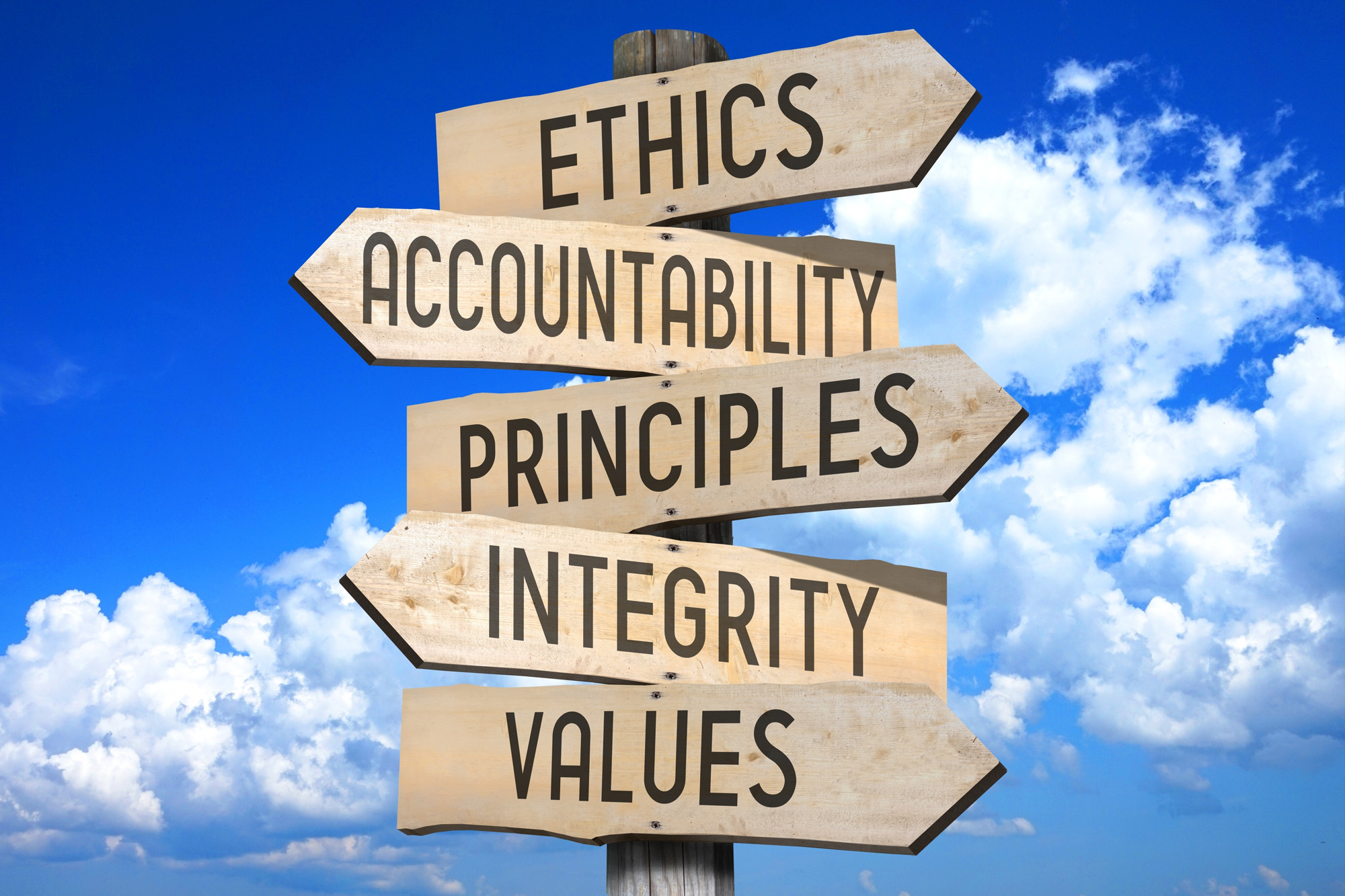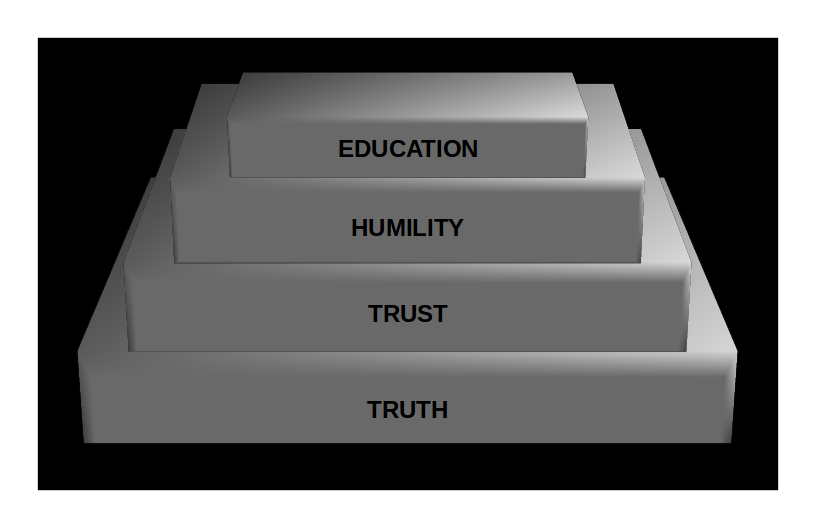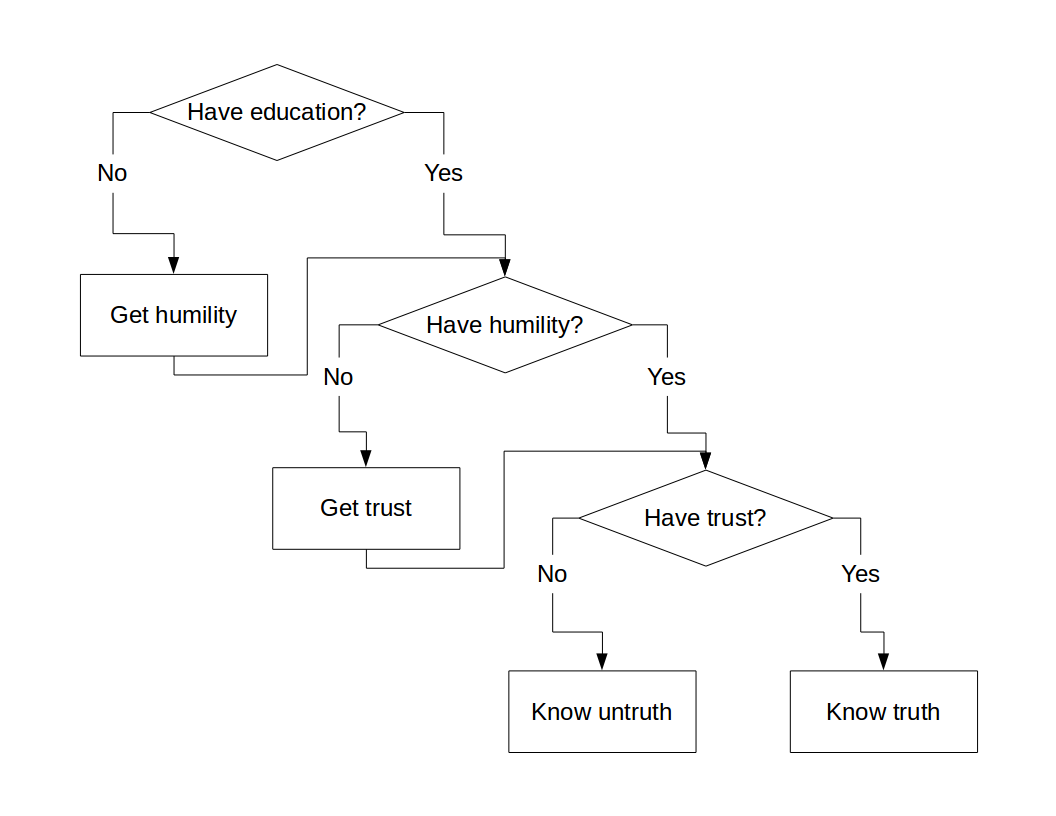
Foundations of Education
Copyright © Dr. Stephen H. Dawson, DSL 2022
Published
October 05, 2022

Scope
Assistance to alleviate personal anger and fear by personal instruction on accessing truth through education after possessing the necessary humility and trust requirements.
Overview
Widespread anger and fear at the family, local, national, and international levels during the past year has resulted in many types of relationship strains. It is prudent to help when possible in reducing personal anger and fear. An author-reader discussion occurs to teach how pursuing truth is the best means to eliminate both anger and fear at the personal level.
Background
2022 has been filled with a combination of anger and fear for many folks at a level I have never witnessed firsthand. The response to a recent article I published on the topic of power helped bring me insight as to why there is such intense levels of anger and fear held by what I calculate as a majority of folks in many societies. The insight reveals to me the belief that education will connect a person to truth is widespread. Accomplishing education alone does not connect anyone to truth. It never has, and it never will.
I enjoy the productive results of conversing with people to do my work. It helps them process the breadth and depth of the work I accomplish for them to the point it is a competitive advantage for me when I serve them. I recommend you as the reader and I as the author take a mental walk together for me to share with you a bit about how to find the thing called truth during any pursuit of education.
Preparing
Let's view your education as a set of projects intended to work together. You are the leader of the projects, each with its independent and complementing scope, schedule, and budget. Specifically, you seeing to it you receive the necessary education for all you need to know. You are practicing autodidacticism everyday whether you know it or not. We are all doing autodidacticism. We all always have been, and we all always will.
I observe angered and scared folks today who view many things in many forms. I addressed the concept of scared in a previous article. I addressed the concepts of looking and reading in previous articles. I hear these same folks saying they are finding evil in many forms. I also addressed the concept of evil in a previous article. I spoke to the larger topic of The Stuff in a previous article as a means to help folks avoid evil. I encourage you to read these articles.
I realize you will need to read this article a few times to digest it all. It took me several decades to be able to write it for you. I encourage you to spend time stepping through both the cited articles and this article after you and I complete our walk.
Walking
We begin our learning journey by considering what I identify as the Foundations of Education. It is a viewpoint on understanding reality. I provide this viewpoint as both a concept drawing and a process.

Foundations of Education - Concept Drawing
Copyright © Dr. Stephen H. Dawson, DSL 2018
Coming together as an organization and not only as either a contributor or a team means we must discuss the process of learning in the determination of justifying a project. Otherwise, we risk prospective team members not holding a sufficing understanding of the learning process to accomplish the matters experienced in a project requiring any aspect of learning. Isolated people or groups of people apart from formal teams functioning as organizational antibodies are examples of how a project cannot proceed with such division, particularly if it is large enough division to deride the project. Setting the scene for the actors to understand ignoring a project charter comprised of scope, schedule, and budget could occur to some degree, but ignoring each project's justification is similar to mutiny. A leader who cannot justify their project by cross-examination among learned colleagues by reasoned review of the project most likely does not have sufficient justification to undertake their project.
The objective of learning is to understand truth. Truth is absolute. There is no degree or amount of truth. There is no singular or plural characteristic of truth. There is no separation of noun or verb when describing truth. Truth always has been, and it always will be. I am not here to sway you to decide either the source of truth or the composition of truth. Neither am I here to mandate you hold a particular worldview. I am here to inform you truth is more than a concept. It is the entire composition of reality.

Foundations of Education - Process
Copyright © Dr. Stephen H. Dawson, DSL 2018
Kuhn and Hacking (2012, location 128) argued new learning can invalidate old learning by a discovery fostering a revolution in many forms ranging from passive change to chaos. Their position is not unique in the spectrum of human knowledge, but it does assert science is not outside of this potential invalidation experience. Their work presented a rough outline of gaining further education. Today, we know in part and hope to know more by the pursuit of knowledge. Knowledge itself is an isolated view of truth. This condition distorts the understanding of truth, as the distortion introduces a bias by ignorance. A condition of not knowing equaling not responsible, thereby relieving accountability, is poor reasoning. If this construct were good, then members of any society would do well to be ignorant and be free of incurring fees, fines, and lawsuits in addition to angry neighbors who take offense by such unaccountability.
We just shifted our discussion from truth to a comparison of good and bad. If truth is good, then untruth is bad. If truth is absolute, then we apart from truth are relative. We are, in this condition, at best, unimportant. The truth is we are each important as each of us holds some form of truth regardless of either our awareness of or willingness to acknowledge such possession. If truth must be discovered by intent, then it is not able to be obtained by ignorance. Truth can be discovered apart from intent. If truth seeks us, then truth finds us. Truth seeks us as we are each a part of reality. Truth affirms itself. If truth seeks itself, then truth is affirmed in perpetuation. A person standing in front of a bus and being struck by the bus brings many truths into play, but this event does not mean this person either understood or even acknowledged the truths resonating from this event. Truth is not an event, a person, or even a principle. Truth is reality. It is the all-encompassing experience of life.
I understand there are four foundations of education. I present this realization as a concept using architecture as the clay in my conceptual model. They exist as layers in a defined order. The four foundations of education have no fenestrations. Three of them are each a platform with an expanding and contracting length, width, and depth. One of them is a platform that does not change. This platform is the truth layer. The amount of depth between each foundation is the amount of disconnect between the foundations caused by our possession or dispossession of ignorance, pride, or doubt. They are each realized in this writing as metaphors to best explain each foundation, as no foundation can be reduced to a single term outside of the foundation identified as truth. Even then, defining truth as a foundation when truth is the all-encompassing experience of life accomplishes a disservice to you as the reader. However, from the position of this author, these three aspects of reality are best expressed as foundations resting on truth.
The first foundation is truth. Truth is the beginning of everything that ever was, is, and will be. Next, trust. Trust rests on truth. Trust is the choice made by the person desiring to learn more of what neither they nor anyone cannot know fully. No person can know everything. If they did know everything, then they would know all truth. A person knowing everything is an impossible condition for humanity to experience. Next, humility. Humility rests on trust. A person seeking truth must become more humble to find truth by trusting there is truth and hoping they are not incorrect in their reasoning. They do not have to trust yet, only hold hope. Finally, education. Education rests on humility. Education is the set of processes used to expand cognitive abilities. Neither the pedagogy nor the andragogy of education is addressed in this writing.
This linear representation of truth starting at the bottom and working our way to the top could start in the reverse direction. A person seeking education must acknowledge they either need or want more education because they do not hold sufficient education. This acknowledgment requires increased humility, as it is a profession of self-inadequacy. This condition is the Kuhn and Hacking argument coming forth without necessarily finding new learning to add to the human body of knowledge. New learning has occurred for this person, as they learned they are inadequate today and must grow through increased education. A larger foundation on a smaller foundation is called a platform, scaffolding, or balcony. Each of these architectural members is less stable than a foundation. If education cannot be broader than truth, and there are one or more foundations in between education and truth, then these adjacent foundations must also become larger. Then, once humility has expanded enough to hold the education foundation, trust must be expanded enough to hold the humility foundation which is holding the education foundation. We already know truth has no expansion or contraction as truth never has nor ever will change. Therefore, neither trust, humility, nor education can ever be or will be larger than truth. Let's step through each foundation together. The intent now is to immerse you in the material we just covered.
Truth
If truth is not absolute, then life would not be possible yesterday, today, or tomorrow. The definition of truth is life, reality, and infinity. Life is an aspect of truth. We stand on truth. The truth is we cannot exist apart from truth.
Trust
If truth is relative, then learning at best is relative. If trust is relative, then trust is not a member of truth. The definition of trust is knowing there is more but not understanding how there is more. More, of everything. More, of what we do not know. More, of what we cannot understand now. A person seeking truth must trust they do not know the truth, the truth exists, and it is attainable. Accessing truth requires the student to grow their trust. The truth is growing trust only comes from fear. Fear can be considered an acronym for false evidence assuming reality. There is healthy and unhealthy fear. I am referencing healthy fear. Separating false evidence from truth in the learning journey eliminates fear.
Humility
Learning cannot be obtained while holding pride. The definition of humility is professing to not only yourself but anyone who cares to listen you are insufficient in some aspect of life. Insufficient, in the form of needing to grow. Insufficient, in the term of being able to grow. Insufficient, in it is time to grow. Extending trust is a form of humility. If learning can occur apart from either trust or truth, then learning does not require humility. Accessing truth requires the student grow their humility in addition to growing their trust. The truth is humility is tougher to obtain than trust. A humble person can trust more than a prideful person, as a prideful person holds the mindset they are self-sufficient. The prideful person thinks they know who they are, so they believe they do not need to extend trust to anyone. If self-pride is good, then truth is bad. Truth is bigger than anyone. So, pride is bad.
Education
A person realizing they must learn more than they know now is the person who must decide they want to learn something specific. The definition of education is gaining more knowledge, more understanding, more abilities. I will not provide you instruction on the steps to accomplish receiving education, as they are addressed in other already accomplished resources. The understanding learning how to learn involves education alone is a false statement. A person can only achieve education by accessing truth. Accessing truth requires the student grow their humility in addition to growing their trust before they can gain further education. They can learn a skill or a fact, but not gain an education. Education is more than a single component. The truth is education is the transformational experience of becoming cognizant truth is more than assembling knowledge.
Assembly
So, what have we learned? We are not as smart as we thought, we have to trust truth, getting humility is tough to achieve, and then begin the pedagogy processes. The truth is traveling this journey is a lifetime experience. It has milestones along the way of earning diplomas, degrees, certifications, and licenses. However, if life is only learning without experiencing, then life would be pretty boring. Watching a sunrise on the ocean for the first time is an indescribable experience, as is seeing snow for the first time, a baby being born, the death of a loved one, or countless other examples edifying we are not in control of this thing called life.
I submit to you education is good, but truth is the embodiment of all good. If you did not believe you needed more education, then you would not be reading this material. If you were prideful, then I doubt you would have gotten this far in the material. If you did not trust there is some degree of truth in what you have read so far, then you would not care about truth.
Receiving education is not accomplished by gaining direct access to truth. Accessing truth in the education process requires first passing through humility and then trust. The journey to truth without possessing trust arrives at possessing untruth.
Remember, believing truth and knowing truth are two different actions. Folks sometimes try to lump believing and knowing together. They are not the same. Lumping them together results in holding something labeled falsely as knowledge. Check 1 Timothy 4:3 and 1 Timothy 6:20 for more information. The author of that text covers the topic better than I can say it.
Conclusion
The truth is you are a bit closer to truth now than you were when you started reading this material. It took me about fifty years to walk the road you just traveled in these pages. I hope it was time well-spent for you.
Kuhn, T., & Hacking, I. (2012). The Structure of Scientific Revolutions. Chicago London: The University of Chicago Press [Amazon Kindle Cloud Reader]. Retrieved from https://read.amazon.com/.
Stephen Dawson is an executive consultant of technology and business strategy, serving significant international organizations by providing leadership consulting, strategic planning, and executive communications. Contact him at service@shdawson.com.